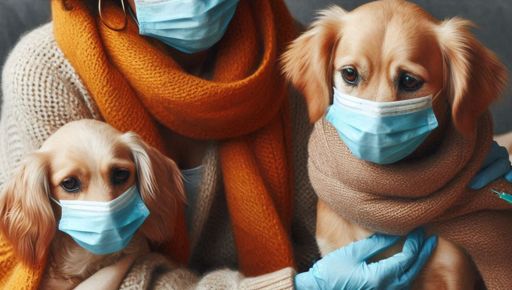
Parainfluenza is a viral virus that creates respiratory symptoms in dogs. It is identical to canine influenza but requires different treatments and immunizations. Both are very infectious and can be found in areas with a high concentration of dogs, such as dog race courses, shelters, or kennels.
Parainfluenza virus infection is a highly transmissible viral lung infection that may result in infectious tracheobronchitis, popularly known as ‘kennel cough.’ This is quite common in downtown Toronto. For more information about parainfluenza, contact a veterinarian in downtown Toronto.
Why should you be careful about parainfluenza in dogs?
Parainfluenza is a highly contagious lung virus that infects dogs of all ages. It spreads through contact with sick dogs or via airborne droplets from sneezing or coughing. If not treated, the virus can cause a number of symptoms and develop into more serious respiratory illnesses.
What are the signs of parainfluenza in dogs?
The signs of a canine parainfluenza viral infection are mentioned below. The severity or degree of these symptoms may differ depending on the age of the sick animal and the host’s immune system.
- Coughing: This can be both a dry cough or a moist cough that contains blood.
- A low-grade fever
- Discharge from the nose: This could be mucous, pus, or even blood.
- Decreased energy and appetite.
What causes the parainfluenza in dogs?
Parainfluenza is a highly infectious viral illness that travels through the air, especially among dogs who interact with other dogs.
The virus produces respiratory symptoms identical to canine distemper, such as a dry cough and irritation of the larynx, bronchial passages, and trachea.
Puppies and older pets with weaker immune systems are more vulnerable to infection, whereas toy breeds are more vulnerable to pneumonia because too-thick secretions result from throat irritation. The infection can persist in the atmosphere for as long as two weeks after cure.
How is Parainfluenza diagnosed?
When you bring your pet to the veterinarian, they will ask for a detailed history from you. The parainfluenza virus spreads quickly in boarding kennels, grooming shops, and other places where dogs gather. It is essential to provide information on your pet’s activity in the two to four weeks before symptoms show.
Your veterinarian will also want to hear about your pet’s medical condition and vaccination history. Any experiences your pet has had with other dogs, regardless of whether in different environments, could be helpful in determining the source of the disease, so please provide as much info as possible.
The veterinarian will conduct a physical exam, as well as a few diagnostics such as blood tests, cultures, and fluid and tissue sample analysis. He may also need to utilize imaging techniques like radiography (x-ray) to see whether there are any lumps or worms present. After all of the testing findings have been collected and analyzed, a treatment strategy will be created and implemented.
How to treat?
Your veterinarian has no reason to suggest hospitalization because the illness is very infectious to other canines unless the case is urgent. Instead of being hospitalized, your veterinarian may give management recommendations that include the following:
- Recommendations for appropriate nutrition, hygiene, and nursing care.
- Recommendations for remedial steps for any environmental elements suspected of contributing.
- Cough suppressants, including codeine derivatives, should only be used for prolonged and ineffective cough relief.
- Severe chronic cases may require antibiotics such as quinolones, cephalosporins, chloramphenicol, and tetracycline; the proper antibiotic treatment will most likely be chosen based on the results of the cultures taken and examined.
Is there a vaccination for dog parainfluenza?
Yes, there is. Between the ages of 6 and 8 weeks, your veterinarian will provide the DHPP vaccine (Distemper, Hepatitis, Parainfluenza, and Parvovirus). Then, they will administer boosters to puppies aged 10-12 weeks, 14-16 weeks, and 12-16 months. After that, it is highly suggested that your dog’s annual immunizations and routine checks be set up to avoid parainfluenza and a variety of other diseases.
